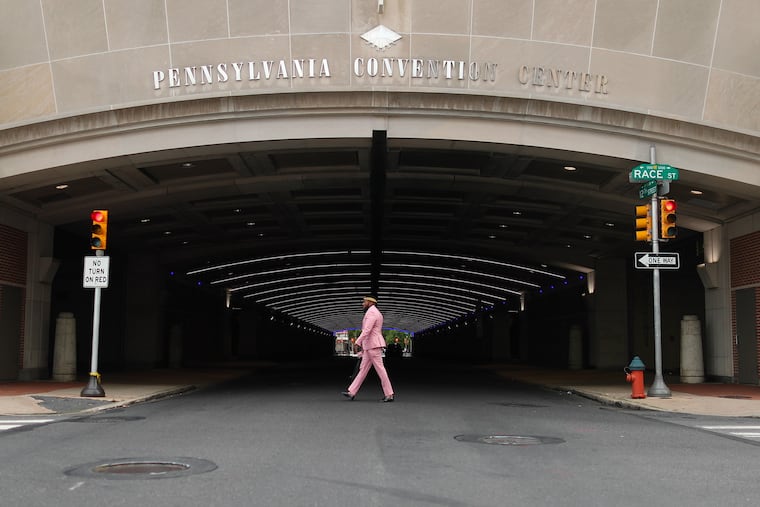Philadelphia Asian American Film Festival is back, telling us there’s no one way for Asian American filmmakers to tell stories
The festival, in its 15th year, runs from Nov. 3-13, in person and online.

The Philadelphia Asian American Film Festival is returning for its 15th year, expanding on its mission to understand and amplify Asian and Pacific Islander experiences. At the heart of this exploration lies an understanding of the complexities of Asian American identities. Naturally enough, the theme concept for this year’s fest is, “Intersections.”
For executive director Selena Yip, who started as a volunteer with the festival, experiencing the films is enhanced by the festival’s distinct identity and community engagement.
When the creative team met to review this year’s submissions, it set out to find common threads between what the filmmakers and the creative team were feeling in this current sociopolitical moment.
“I am a Hong Kong American, and gender fluid,” Yip said. “I am chronically ill and am a community organizer, leader, cat parent, partner, artist, reader” and with that, comes appreciation for the many identities of the team and the creators who submitted their films. Films this year hail from all over including Aotearoa (New Zealand), Philippines, Korea, and Philadelphia.
“We are more than just Asian American and Pacific Islander. Yes, there are huge parts of us that are influenced by those identities. But there are so many other parts to what it looks like to be a part of this community,” Yip said. The team’s dedication to intersectionality shines through in its choice of opening night film, the documentary Blind Eye Artist.
Directed by Ashwin Chaudhary, Blind Eye Artist tells the story of Justin Wadlington, a Philadelphia artist who was 5 when an accident left him blind in one eye. After years of focusing on surviving, living in emergency shelters and group homes, Justin rediscovers his childhood appreciation for art and works to inspire kids like him.
However, Blind Eye Artist does not have Asian protagonists.
“In my first year at PAAFF, we celebrated the milestone of having our first Southeast Asian opening night film,” Yip said. “And this year, we’ve tried to move beyond that.”
PAAFF’s opening and closing night films aren’t Asian American stories. “We have a Black artist’s story and we have an immigrant story,” Yip said. “Though we’re not on screen, these are universal stories. We can still relate to them, we can learn new things about people, and can consume great art.”
The closing night film, Ricochet, directed by Jeff Adachi and Chihiro Wimbush, is a documentary that follows two public defenders working to uncover the truth about a woman, shot and killed by an undocumented immigrant in 2015. The slaying sparked anti-immigrant rhetoric championed by then-presidential-hopeful Donald J. Trump. The film presents opportunities to find connections that go beyond the singular “Asian American” and “Pacific Islander” tags. The program invites us to explore the many different identities, experiences, and lives Asian Americans hold within themselves, and to witness the amazing things that are born from these intersections.
Other festival must-watches are Temple professor Rea Tajiri’s Wisdom Gone Wild, a reflection on aging, mortality, and transformation. Focusing on Tajiri’s mother, Rose Tajiri Noda, the film weaves between past and present, parenting and being parented, the unreliability of memory, and the desire to reinvent one’s own life when memories fail us.
» READ MORE: BlackStar Festival films shine light on health equity
Kristal Sotomayor’s Expanding Sanctuary covers the extraordinary transformation of an immigrant worker, Linda Hernandez, who yearns for her mother’s presence at the dawn of her new marriage and new life. Catch the doc in a rough-cut screening.
For fans of narrative films, there is Aotearoan director Matasila Freshwater’s Teine Sã, the Ancient Ones that features five tales of folktale horror featuring old goddesses of Polynesia, who are summoned to the modern world.
Aporia by Lee Ju-hyoung tells the story of someone caught in the midst of cultural, religious, ethnic, and national conflict. After fleeing Syria with his family, Haleem finds himself struggling in an unfamiliar country with a fake passport, working illegal jobs in the hopes of being reunited with his family.
Thematic short film programs like Being Human seek to highlight experiences surrounding mental illness, addiction, and vulnerability, while Family Dynamics/Healing Connections explores the ways family connections can uplift or harm us. Together, We Rise features LGBTQIA stories and the strength of their community. For those still experiencing Halloween withdrawals, there is Midnight Madness, which dives into the bizarre and unusual.
There will also be panels titled “Asian Americans & Political Representation” and ”Asian Futurisms,” which offers a discussion on the queerness of time, the othering of Asian ways of being, the drag of history upon the present moment, and how these ideas are all depicted, addressed, and complicated in a multitude of Asian futurisms.
―
Philadelphia Asian American Film Festival runs, in person and online, Nov. 3-13. For information on venues, schedule, and tickets, visit: https://paaff.org/